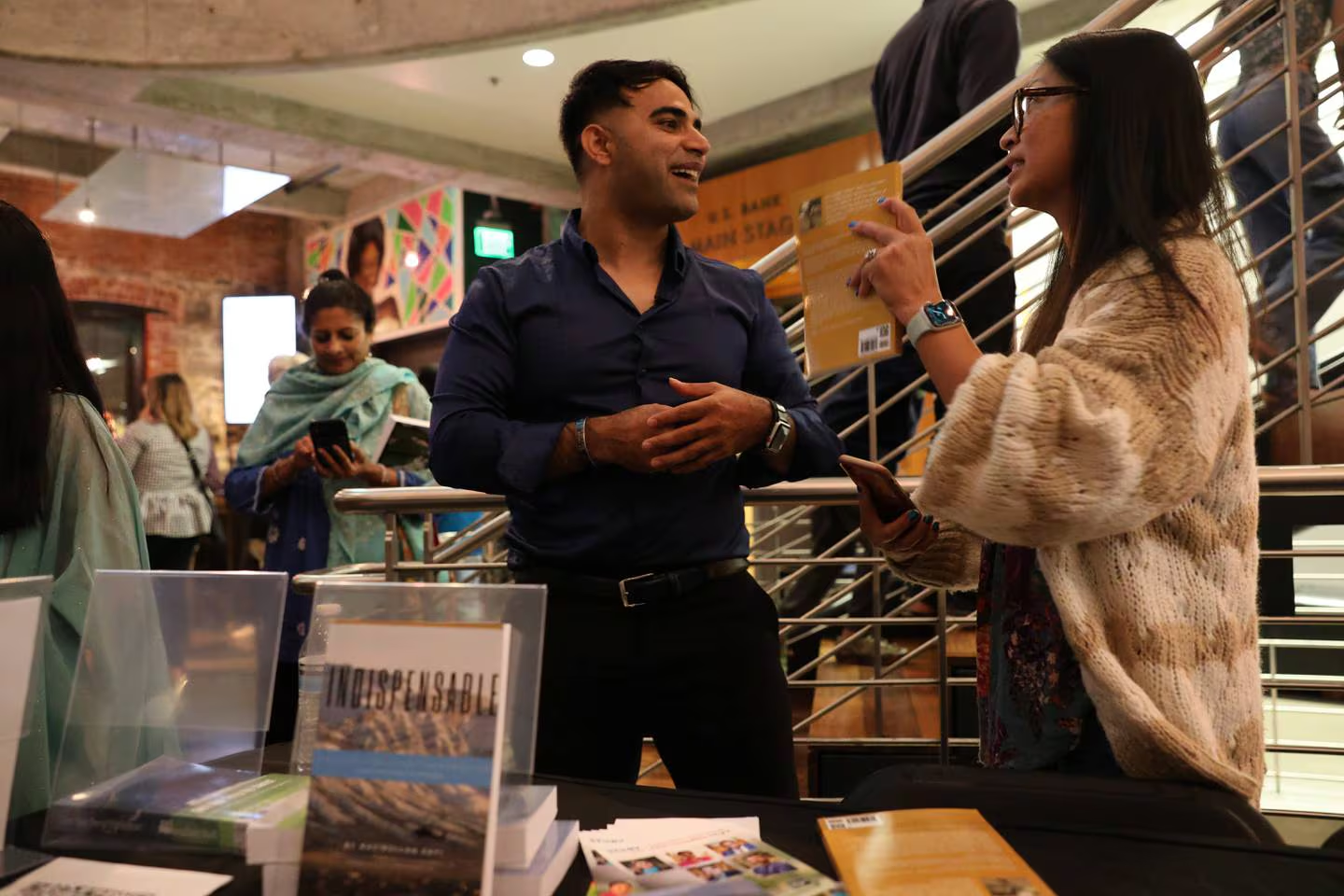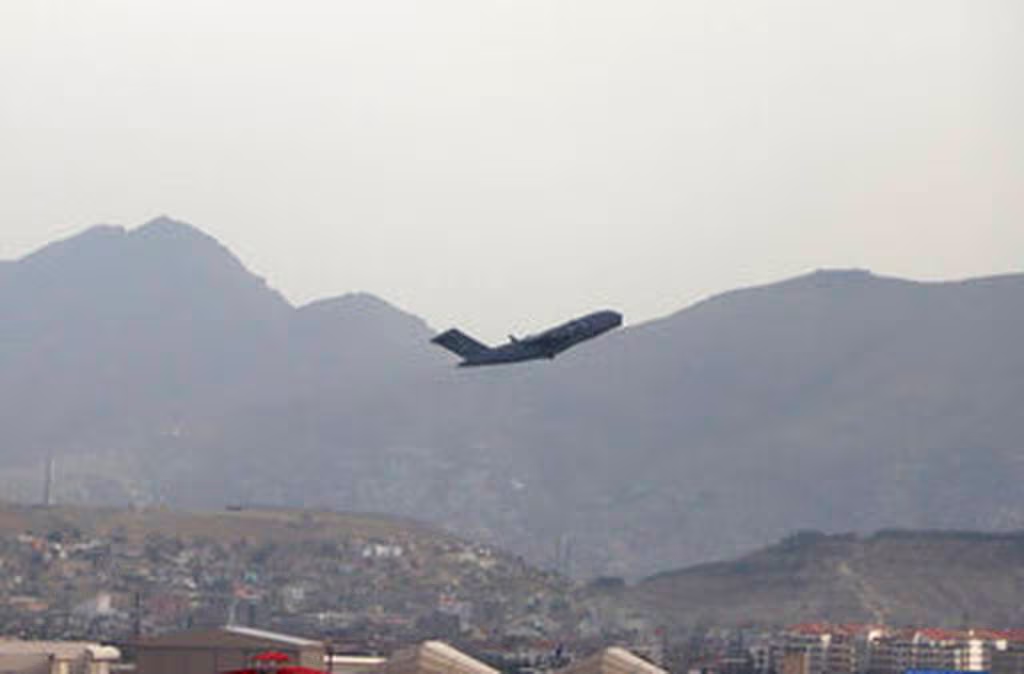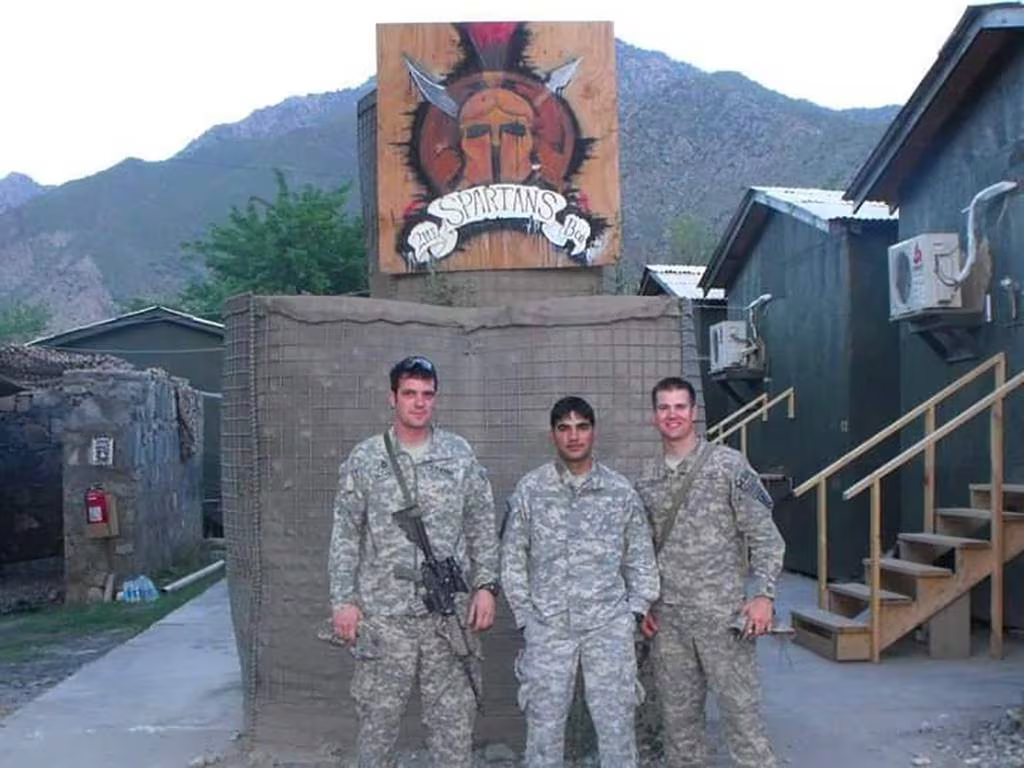On an August night from his Stayton apartment, Nasirullah Safi called his family in Afghanistan, where it was morning. He quickly caught up with his sister-in-law before she handed the phone to his brother Jasim Khan. It was rare to catch him at his family’s home. Jasim Khan was on the run from the Taliban and frequently changed locations, cycling between different friends’ houses each month.
“Have you talked to anybody? Have you reached out to anybody?” Jasim Khan asked, eager for an update on his visa application to the United States.
“I’m working on it,” Safi replied, the same answer he’d offered many times before. Since the Taliban’s return to power in 2021, he’d been desperately trying to get his family out of Afghanistan. All were being targeted for their infidelity to the Taliban regime.
“I get so disappointed,” Safi said later. “We have done so much for the U.S. government, and now I have family members trapped there who deserve to be here.”
Safi ended his call, eager to sleep after a long day. Earlier, he’d taken an Afghan family of eight to a doctor’s office in Salem to help them establish medical care. Before that, he’d taken another Afghan family to the Social Security Administration office to get new cards. Both families were refugees who’d landed in Oregon within the past month — two of the 13 families Safi works with as a caseworker for Salem For Refugees.
“There’s a lot that our organization does to help them and empower and support our newcomers to thrive,” Safi said.
After the U.S. withdrawal from Afghanistan in August 2021, a new wave of Afghan refugees began arriving in the United States. Those who land in Oregon are often greeted at their gate by Safi, offering a smile and a greeting in their native language. He’ll lead them down to baggage claim to collect their belongings and then load them into his minivan and drive from Portland International Airport to Salem to take them to either their new home or a hotel, where they’ll stay temporarily while their housing is finalized. He leaves them a small envelope of money and helps them sign a few forms to start the resettlement process.
“I notice with so many newcomers and families that I meet at the airport, as soon as they get off the plane, they have no clue where they are,” Safi said. “They know very little about the U.S. and the people here and they just want to express themselves, talk to you, to tell you how they’re feeling.”
Safi vividly remembers the vulnerability of landing in the U.S. for the first time, and the comfort of being greeted by a friendly face. In 2016, he arrived in Texas and was met at arrivals by Sgt. Maj. Kevin Devine. “‘What’s up, Johnny Boy?” Devine said with a grin before grabbing Safi into a bear hug. (“John” was the name Safi was given by U.S. soldiers who found “Nasirullah” too difficult to pronounce.)
In 2009, Safi started working as an interpreter for Devine, then a sergeant first class in the Army, at Combat Outpost Monti, one of the frontlines in the U.S. war in Afghanistan along the country’s border with Pakistan. Safi became a liaison between U.S. troops and Afghans, relaying combat plans to Afghan police and cultivating sources among local villagers. He monitored a radio scanner to listen for the Taliban’s attack plans and reported their movements to Devine. “I could have lost so many soldiers if it wasn’t for him,” Devine said.
The two became close, undergoing numerous firefights together against the Taliban, with bullets whizzing by their heads, dodging rockets and mortar fire. Safi was eventually told to pick up a gun and start returning fire. “There’s not many interpreters we gave weapons to, but he was one of the few guys we did,” Devine said.
Safi’s work for the U.S. government began when he was 15 years old. His older brother, Yasin, had already been working for the Americans as a truck driver, transporting building supplies to soldiers who were building combat outposts and rebuilding villages damaged by Islamist fighters.
Growing up during the rise of the Taliban regime, Safi learned English by taking lessons in secret from a local farmer. After Sept. 11, 2001, and the U.S. invasion of Afghanistan, Safi grew accustomed to seeing American soldiers patrolling his city. He watched them secure the perimeter of his school, guarding it from Islamists hostile to the secularity of public school. The troops also brought his classmates badly needed school supplies: pens, pencils, notebooks, and backpacks.
In November 2008, Safi walked onto a U.S. Army airfield to interview for a job as an interpreter. He got the job, and by January 2009, he was deployed to a combat outpost along the Afghanistan-Pakistan border. Each month, he’d send home his monthly paycheck of $500 — a much heftier sum than could be made in the Afghan economy.
Later that year, while conducting a patrol in a neighboring province, an insurgent fired a rocket-propelled grenade toward Safi and his infantry. A chunk of shrapnel struck his left arm, leaving a scar that’s still visible today. “It’s a permanent reminder of the Afghan war, something I can never forget about,” Safi said.
:quality(70)/cloudfront-us-east-1.images.arcpublishing.com/advancelocal/CMHZYJTHLRHOZG6VOWMU3PDM54.jpg)
Safi has experienced a lot of death throughout his life. As a child growing up in a tiny village under the rule of religious extremists, he learned of the death of his schoolmates at the hands of the Taliban. As a military interpreter, he witnessed the death and injuries of numerous American soldiers and Afghan security personnel.
Most tragic was the death and injury his family members experienced in retaliation for Safi’s work with the Americans. Safi and his family began receiving death threats after he started working as an interpreter. Safi’s parents would find little slips of paper outside their door. “We know where you live,” one note read. “We know your son is working for the Americans.” In 2010, Safi received a phone call from an unknown number. “You’re a traitor,” said a strange man’s voice. “We’re going to cut your family up into little pieces. If we catch you, we’ll kill you as well.”
In 2011, Safi’s brother drove over an improvised explosive device planted outside his home. After a month in a coma, and multiple surgeries to remove the shrapnel from his back, legs and chest, he survived.
In 2013, Safi’s 7-year-old nephew woke up feeling sick and took a rickshaw with his father to the doctor’s office that morning. On their walk home, both were shot and killed by the Taliban.
In 2015, Safi’s youngest sister was returning home from her job at a hospital when she was shot five times in the abdomen. After several surgeries, she survived.
“There are days I feel so sad and so upset about everything and I blame myself for things that have happened to my family,” Safi said. “They’d never blame me. They say they’re proud of everything that I’ve done, but the guilt is still there.”
Safi applied for a special immigrant visa at the end of 2009. Despite submitting over a dozen recommendation letters from second lieutenants to four-star generals, and enduring a long, winding bureaucratic process, it would take seven years for Safi’s visa paperwork to be accepted.
“It’s crazy it took that long. There were other interpreters that did less time than him and were in the states way before him,” said Devine, the former sergeant who Safi worked with. “I kept writing to the folks at the State Department. … I think they just lost track of his paperwork,” Devine added. In response to request for comment, the State Department said visa records are confidential and could not discuss details but stated their ongoing commitment to processing visa applications for Afghan refugees.
Safi traveled with Devine to Massachusetts, where he worked for three years as an arborist in Martha’s Vineyard. A different military friend urged Safi to visit him in Oregon. In 2019, Safi booked a roundtrip flight to Portland but never returned to Massachusetts. “I loved it,” Safi said. “With the mountains and the trees, it felt like home.”
He began working at a mini mart in Stayton and taking science classes at Chemeketa Community College to prepare for applying to medical school. His goal is to eventually become a cardiologist.
Salem For Refugees hired Safi in October 2021 to help with the influx of Afghan refugees entering the United States. His fluency in Pashto, Urdu, Dari and English means he can help welcome refugees from all over Afghanistan, though he helps resettle refugees from other countries as well, including Myanmar, Syria and Sudan.
Adam Mohamed came to Oregon with his four nephews in August after fleeing war in South Sudan and living as a refugee in Kenya for 12 years. “He’s very nice,” Mohamed said of Safi, his case manager. “When we need to go somewhere we just call him, and he picks us up.” When he and his nephews initially arrived stateside, Safi got them settled into new housing, with food stamps, Social Security cards, and a modest amount of cash. He’s now helping them secure full-time employment and bicycles so they can more easily move around Salem, Mohamed said.
“Nasirullah has a great perspective on what it means to go through trauma,” said Luke Glaze, executive director of Salem For Refugees. “Clients can be distrusting or even afraid of the process or assuming the process is out there to exploit them. … He knows how to support that client in not being rushed or expecting a certain response. He’s very patient.”
Since becoming an official resettlement agency two years ago, Salem For Refugees has welcomed 483 refugees, including 214 people from Afghanistan. The organization hires only case workers who were once refugees themselves, and serves clients from the Middle East, Central and East Asia, Africa, South America and Eastern Europe.
:quality(70)/cloudfront-us-east-1.images.arcpublishing.com/advancelocal/GWIFYFWKKZHRPMZL6ZWUR7HIS4.jpg)
Safi welcomed his brother Yasin to Oregon in June 2021. He’s hopeful Yasin’s wife and children will soon be able to join him. He wishes to someday welcome his other siblings and maybe even his parents to Oregon, though his hopes are fading. Each time he has inquired with the State Department as to the status of their applications, he’s been told they’re still under review.
He’s also tried other avenues. Brief correspondences with the offices of former Secretary of State Condoleezza Rice and U.S. Rep. Suzanne Bonamici (D-OR) went nowhere, he said. In March, he wrote to Sen. Jeff Merkley, pleading for his intervention in getting his brother Jasim Khan to Oregon, with no response. Last year, he’d been in touch with Stanford University’s Hoover Afghanistan Relief Team seeking help for his family and hasn’t heard back since sending in the requisite paperwork. Safi sent his family’s visa paperwork to the office of U.S. Rep. Seth Moulton (D-MA), who took on a public role getting hundreds of Afghans evacuated after U.S. troops withdrew from the region. Safi has yet to receive a reply.
Back in Afghanistan, Safi’s family lives in constant fear. In August, their home was invaded by Taliban soldiers who searched their house and dug holes in one of their bedroom floors, searching for evidence of their connection to the U.S. military. It was the second time this year their house was ransacked.
“My parents have been sick. They’re getting older. It troubles me a lot. There’s not a single day when I don’t think about them, and it breaks my heart,” Safi said.
He dreams of a time he’ll be able to go to the airport and welcome the rest of his family to Oregon. In the meantime, the opportunity to welcome new refugees is a consistent source of comfort for him. “The families that we welcome, they’re coming from all different parts of the world, but every single one of them has a story a lot like me and my family,” Safi said. “The pain and struggle and trauma are often the same, and that makes me happy to go to the airport and try to do my best to make them feel at home.”


